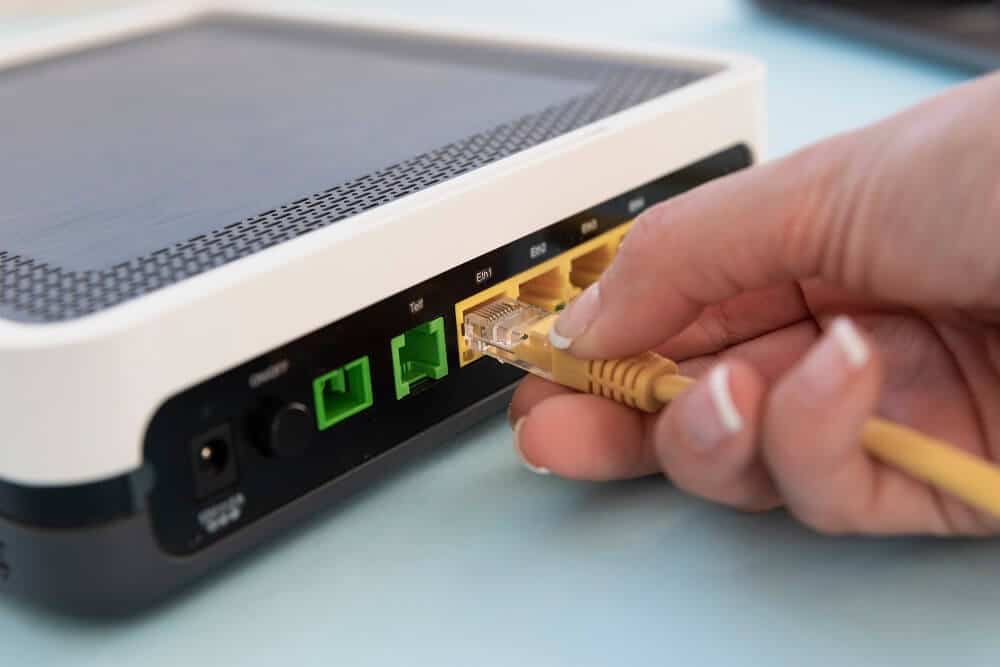So, to resolve this dilemma of people, in this article, you will learn about a modem, a router, their working, and major differences between the two.
What is the Difference Between a Router and a Modem?
Yes, there is a difference between a modem and a router and it is very simple. A modem is one that connects to the internet and a router is one that connects your device to the Wi-Fi so that you can access the internet easily. In short, a router creates a network between the computers and other devices available in your home while a modem connects that network and thus, your computers and other devices to the internet. Both are necessary components for wireless and wired internet access in your home or at any other place. Now, let’s learn more about a modem.
What is the Difference Between a Router and a Modem? Modem How does a Modem work? Pros and cons of a Modem Router How does a Router work? Pros and cons of a Router Difference between a Modem and a Router 1. Function 2. Connections 3. Security 4. Independent 5. Device type and layer When do you need a modem or a Router?
Modem
The term modem stands for modulator/demodulator. A modem is a hardware device or program that converts the data between the transmission media so that it can be transmitted from one device to any other device. It allows a computer to send the data over the telephone lines, cable lines etc. using analog signals. The data is stored in devices like computers digitally, but when transferred, they are transferred in the form of analog waves or signals. A modem converts the digital data present in a computer into a modulated electrical signal for the transmission over devices through cable lines and this electrical signal is demodulated at the receiver side by a Modem so that it can recover the digital data.
Also Read: How to Unlock Huawei Modem
How does a Modem work?
A modem usually has lights/LEDs at their front so that you can easily see what is going on at the moment. Basically, there are four lights/LEDs available at the front of a modem serving different purposes. So, by seeing which LED or light is working or blinking, you can easily see what your modem is currently doing or what is currently going inside it. If the sending or receiving lights are blinking, it means that your internet service provider is having some issues and you need to consult them. A modem connects the source of the internet from the ISP to your home or other places where you want to access the internet devices using cables like Comcast, fiber optics, satellite or any dial-up phone connection. Different services have different types of modems and you cannot interchange them. To access the internet in rural areas where telephones lines exist but there is no support for cable-based TV and internet services, DSL is used instead of the modern cables which are typically slower.
Pros and cons of a Modem
Pros
It connects to an ISP. ISP Compatibility It converts a digital signal into an analog signal for the transmission over a cable.
Cons
It cannot create a local network and run Wi-Fi. It doesn’t connect multiple devices to the internet.
Also Read: What is a Device Driver?
Router
A router is a networking device that transfers data packets between computer networks. Basically, a router is a small box that joins two or more networks like the internet and the local network. The data sent by the internet like an email or any web page is in the form of packets. These packets are then transferred from one router to another router through the internet until it reaches the destination. When a data packet reaches any of these lines, the router reads the destination address of that data packet and forwards it to the next network towards its destination. The most familiar type of routers are home routers or office routers. The routers are stand-alone devices. Routers have a dedicated, colour-coded Ethernet port that it uses to physically connect to the router like WAN (wide area network) and four additional Ethernet ports for LAN (local area network).
How does a Router work?
The router comes in all sizes and prices. The wireless ones include two external antennas or more depending on the model. Also, the connection speed of the router depends on the proximity of the router. The working of the router is very simple. It connects multiple networks and routes network traffic between them. To understand the working of a router in simple words, just imagine a router as an intermediary between the internet connection and the local network. The router also offers protection to your devices so that they do not get exposed directly to the internet. You cannot directly connect to the internet using just a router. Instead, your router must be used in conjunction with a Modem as it transmits the traffic over the internet connection.
Pros and cons of a Router
Pros
Simultaneous connection to several devices Security and Adaptability VPN utilization Wireless Technology Portability
Cons
Data Overhead Complicated Setup Expensive
Difference between a Modem and a Router
Below are the differences between a modem and a router.
1. Function
A modem is like a translator between the internet and the local network. A modem modulates the electrical signal into a digital signal and demodulates the digital signal into an analog signal while a router creates a network and allows multiple devices to connect to this network. If you have only one device, then you do not need any router. A modem has an Ethernet port and a computer or any other device can connect directly to this Ethernet port and access the internet. But if you have multiple devices, then you can connect to the internet using the network created by a router and then can connect to the internet.
2. Connections
A modem has only one port and can connect to only a single device at a time i.e either to a computer or a router. So, if you have multiple devices, you cannot connect them all using a modem. That is why a router is required. On the contrary, a router can connect to multiple devices at a time either through the Ethernet cables or the Wi-Fi.
3. Security
There is no in-built security mechanism in Modem and it does not scan the data for any security vulnerability. So, it can pass threats to all the computers connected. While a router contains proper firewalls to provide security. It properly checks the data packets to determine their destination and then prevents any attacks from entering into the connected devices.
4. Independent
A modem can work without any router and can provide internet connectivity to a single device. On the other hand, a router can share information between multiple devices but cannot provide internet to these devices without a modem.
5. Device type and layer
A modem is an internet-based working device which uses the second layer i.e. the data link layer. A router is a networking device that uses the third-layer i.e. the network layer.
When do you need a modem or a Router?
To set up a home network, both the modem and router are required. If you are connecting a single device to the internet with a wire, you only need a modem while there is no such case where you can use just a router. You will always need to use a Modem in conjunction with a Router in order to decode the signal from your internet service provider (ISP). If you’re already using a modem but not getting the desired speed from the ISP then you can use a Router to speed up your network. It has bandwidth limits and it circulates the signal to all the connected devices. Basically, what your router does is that it creates a Wireless connection and manages your Wi-Fi (Internet). Hence, this is all about a modem and a router along with some differences between the two. References:
https://en.wikipedia.org/wiki/Modem https://en.wikipedia.org/wiki/Router_(computing)





